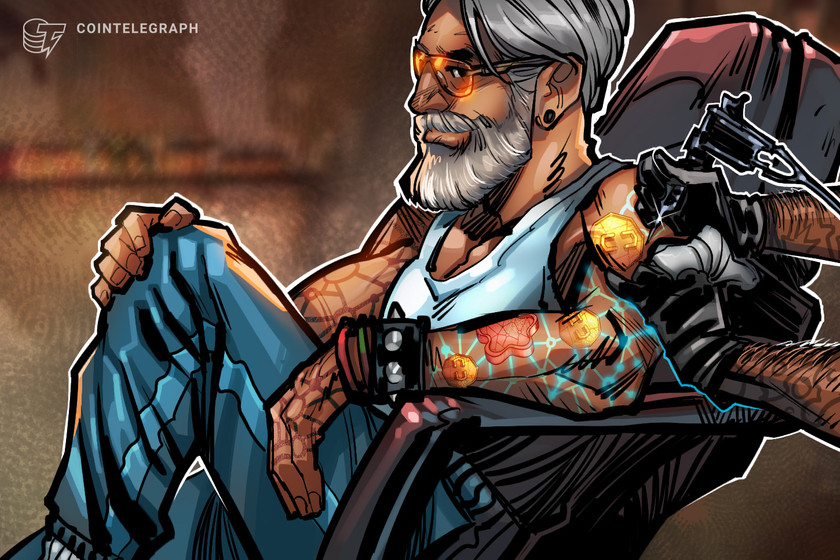Tattoos have been a universal phenomenon throughout the world for thousands of years, transcending cultural transformations and technological shifts. As the art continues to evolve, it has now taken steps into the nonfungible token (NFT) space in a bid to maintain relevant in an increasingly digital world.
Known as Bang Bang in the tattoo industry, Keith McCurdy is one of the artists who hopes to merge the ethos of tattoo culture with disruptive technologies. He’s using a new type of rewriteable tattoo ink that appears and fades away under different lighting conditions.
Over the past five years, Bang Bang said that scientists at the University of Colorado have developed a tattoo ink made of photochromic microcapsules, a technology dubbed “tech tattoos” that leaves a color-changing mark that is activated by UV light, thus changing the tattooed image as it reacts to UV light. He sees the technology as a way to bridge tattoo culture’s desire for individuality with the provable uniqueness of NFTs. Back in June, he sold the first rewritable tattoo as a 1/1 NFT for 100 ether (ETH), or nearly $100,000 at the time.
McCurdy told Cointelegraph:
“Our digital identity will become very important in the future. It may already be more important than our physical identity today. Individualization in a digital world and defining one’s identity is what we do best, and in that exists endless parallels and opportunities.”
Another company working on bridging the tattoo community to Web3 is Indelible — which is allowing owners to use their IP rights by drawing new tattoos and adding i to existing profile pic (PFP) NFTs. Mike Amoia, founder of Indelible, told Cointelegraph:
“NFT holders are always looking to monetize or do different things with their IP. And we feel it’s a really interesting way to monetize or even have fun with your IP by putting like famous tattoo art on it.”
Created eight months ago, the startup had the idea that tattoo artists should be able to expand their work beyond their studios, and have access to unlimited ways to make money from their art. “We felt like it’s a really fascinating application for tattoo culture, and we wanted to do it in the opposite way, which would be tattooing characters on real people. We wanted to tattoo Web3.”
Related: What is an NFT and why are they so popular?
Amoia, who is also an angel investor, came up with the idea two years ago and decided to fund his own startup focused on the untapped potential of combining tattoos with…
Click Here to Read the Full Original Article at Cointelegraph.com News…
























